
Mom Demands Her Whole Family Be Upgraded To First Class, Forcing 13-Year-Old To Give Up His Seat, But Gets Deplaned Instead
You will be surprised to learn that ‘free’ isn’t among people’s favorite words. At least we are, since most of the commotion over a plane seat happens because entitled passengers believe what’s free should be theirs, too. If we didn’t know any better, we’d think these people come with the price of the ticket.
As u/winyyboi shares in his quite terrifying “Entitled Parents” story, this was the exact case after an entitled parent learned about an upgrade he’s getting because of his unaccompanied minor status. Deeming it unfair that parents with toddlers don’t get the same treatment, the mother fought tooth and nail to get the boy’s first-class seat, starting a commotion that resulted in a very memorable flight.
Some passengers feel entitled to certain amenities for reasons beyond reasonable logic
Image credits: Rawpixel (not the actual photo)
A 13-year-old shared the awkward situation he faced because an overly entitled fellow passenger couldn’t accept not getting a seat upgrade
Image credits: hwilson8 (not the actual photo)
Image source: winyyboi
Turns out, unaccompanied flying is more popular than we think (although, not without its own set of drawbacks)
Image credits: Oleksandr Pidvalnyi (not the actual photo)
If you’ve ever encountered an unaccompanied minor, a child between the ages of 5 and 12 flying by themselves, chances are that you must have been somewhat surprised. It’s not every day that you see a sight like that outside of “Home Alone” movies. However, it’s a more popular practice than you might think. According to Encyclopedia.com, there are at least 7 million unaccompanied minors who travel alone by plane each year, at least in the US. In France, the number of kids flying solo is approximately 285,000, as told by Air France.
All major airlines, meanwhile, have different policies for accommodating unaccompanied children as young as 5 years old. For instance, United Airlines requires solo-flying kids to wear distinctive red-and-white buttons, enabling flight crews to easily identify them. Similarly, Southwest Airlines introduces unattended children to flight attendants to ensure their care and safety during the journey.
The biggest drawback to unaccompanied flying is there being different standards. Despite children being well-prepared with the necessary information, the procedures for unaccompanied travel are not standardized. This is due to the absence of specific regulations from the Transportation Department regarding the transportation of minors without adult supervision. As a result, each airline establishes its own policies and prices, starting from determining the eligibility of children to fly alone.
Entitlement is on the rise in the current generation, studies have found
Image credits: farah chaabane (not the actual photo)
You know those infuriating individuals who believe the world revolves around them? The ones who exude an air of entitlement so thick it could suffocate an entire city block or hijack an entire row of seats in the plane? Well, according to a 2017 study, individuals who possess a heightened sense of entitlement tend to exhibit a reluctance to comply with instructions due to perceiving rules as unjust impositions.
Interestingly enough, the same individuals that show a heightened sense of entitlement are willing to face consequences or penalties rather than conform to a system they perceive as unfair towards them – you know, like getting kicked out of a plane. Which systems they deem unfair, however, depends on every individual.
A 2016 study published by the University of Hampshire, meanwhile, revealed an increasing trend of entitlement among young people. The study found that when examining entitlement tendencies, millennials born between 1988 and 1994 scored 25% higher than individuals aged 40 to 60. Furthermore, their entitlement scores were observed to be 50% higher compared to individuals in the older age bracket.
A separate study by The National Institutes of Health showed that the occurrence of narcissistic personality disorder is almost three times higher among individuals in their 20s compared to the generation currently aged 65 or older. Additionally, a study reveals that there was a 58% increase in college students scoring higher on a narcissism scale in 2009 compared to 1982. This rise in narcissistic tendencies has been linked to the prevalence of participation trophies during the formative years of many millennials. The study also suggests that 40% of millennials believe they should be promoted every two years, irrespective of their performance.
Nevertheless, entitlement encompasses more than just a psychological trait and its effects extend beyond the individual displaying entitlement. A notable illustration is the Capitol riots that occurred in 2021. Investigations indicate that the apprehension regarding the so-called “great replacement” phenomenon, which was a motivating factor behind the riots, can be attributed to white entitlement. This unsettling manifestation of entitlement has the potential to be utilized as a driving force for acts of terror.
During our formative years, a sense of entitlement is normal and to be expected
Entitlement, however, is not always a bad thing. Sometimes it should even be expected. As F. Diane Barth, a psychotherapist based in New York City and Massachusetts, explained in her Psychology Today blog: “Sometimes called healthy narcissism or egocentrism, it is part of how a child views the world in the early stages of cognitive and emotional development.” It is common, she adds, for children and adolescents to experience periods where they exhibit self-centeredness, possess an exaggerated sense of confidence or self-importance, and may struggle to empathize with others as they prioritize meeting their own needs. However, it’s the parents’ responsibility to help their kids learn to set boundaries.
So what makes someone believe that they are entitled to preferential treatment over others? “It seems to me that it’s often a question of a person’s capacity to think about other people’s needs,” Barth told Bored Panda over email. “Some people have grown up with a sense of entitlement, and they simply continue to think that they should get anything they want, no matter how it impacts someone else.”
While there is still ample progress to be made in the study of entitlement, Barth has asserted that the way individuals are treated by their parents and authority figures, the impact of media, and the experiences they encounter in life all contribute significantly to shaping their sense of entitlement.
“A person who feels that they were badly treated by their parents and therefore are entitled to anything they want as an adult can sometimes have many of the same traits as someone whose parents saw them as special and therefore always tried to give them whatever they wanted – no matter who else might suffer as a result,” she explained.
People shared the same bewilderment as the OP in the comments
Kinda wild how many comments are so scared of a false post that they will claim every post is fake, as if it wins them some kind of intelligence points. If you don't want to suspend disbelief for the sake of innocent trust, and a story, that's fine. No need to be pompous, though. On a related note: I've definitely seen people act this crazy. Unfortunately, my step mother was one of those crazies.
Can't get them THAT many intelligence points, if they're still wasting energy typing about how fake a story is in the comments. Like it contributes anything to, well, anything. Let alone the topic 😆
Load More Replies...People tell stories because it's what you don't hear everyday. The amount of people anymore who don't believe anyone sharing anything that happened to them is so f*cked. People can live through unbelievable things or describe things in ways that you wouldn't. That's life stories. Its not your life or words. Believe things once in awhile.
I believe a great many things because people are unpredictable and very much quite stupid. A Karen getting mad at a child after she's had kids of her own? Not surprising. Causing a scene on the plane and the husband doesn't try and stop her? Many husbands are tired of their very much changed wives' s**t and just don't bother. It definitely doesn't sound embellished. Just sounds like another Karen.
Load More Replies...I flew as a UM once, when I was nine. That was 28 years ago now. I remember there were about 5 or 6 of us and they seated us all together and one of the flight attendants checked on us regularly and brought us games to play.
Oh yeah! Me too, UM flying in the 90s was great. Usually there were other kids and I made some friends that way! Plus, the flight attendants were usually really nice and we'd get these little swag bags and sometimes get to see the cockpit.
Load More Replies...Kinda wild how many comments are so scared of a false post that they will claim every post is fake, as if it wins them some kind of intelligence points. If you don't want to suspend disbelief for the sake of innocent trust, and a story, that's fine. No need to be pompous, though. On a related note: I've definitely seen people act this crazy. Unfortunately, my step mother was one of those crazies.
Can't get them THAT many intelligence points, if they're still wasting energy typing about how fake a story is in the comments. Like it contributes anything to, well, anything. Let alone the topic 😆
Load More Replies...People tell stories because it's what you don't hear everyday. The amount of people anymore who don't believe anyone sharing anything that happened to them is so f*cked. People can live through unbelievable things or describe things in ways that you wouldn't. That's life stories. Its not your life or words. Believe things once in awhile.
I believe a great many things because people are unpredictable and very much quite stupid. A Karen getting mad at a child after she's had kids of her own? Not surprising. Causing a scene on the plane and the husband doesn't try and stop her? Many husbands are tired of their very much changed wives' s**t and just don't bother. It definitely doesn't sound embellished. Just sounds like another Karen.
Load More Replies...I flew as a UM once, when I was nine. That was 28 years ago now. I remember there were about 5 or 6 of us and they seated us all together and one of the flight attendants checked on us regularly and brought us games to play.
Oh yeah! Me too, UM flying in the 90s was great. Usually there were other kids and I made some friends that way! Plus, the flight attendants were usually really nice and we'd get these little swag bags and sometimes get to see the cockpit.
Load More Replies...
 Dark Mode
Dark Mode 

 No fees, cancel anytime
No fees, cancel anytime 






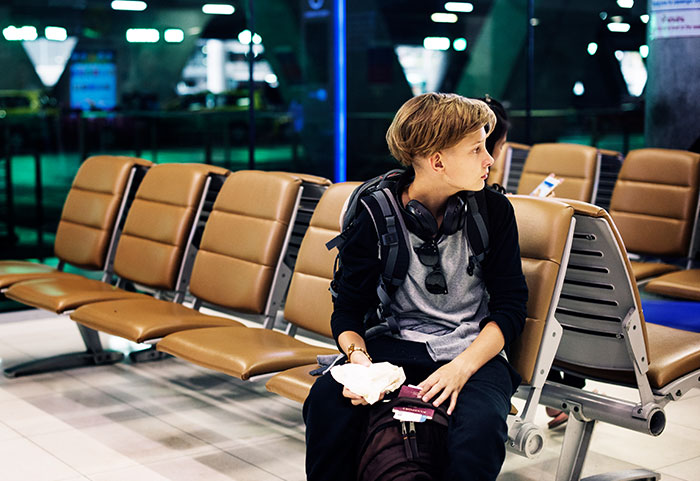

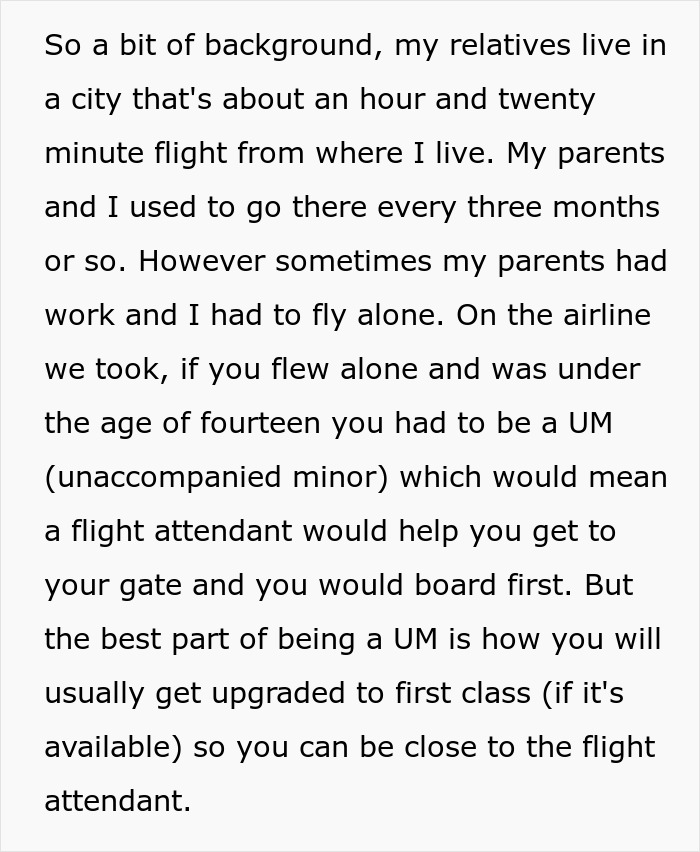
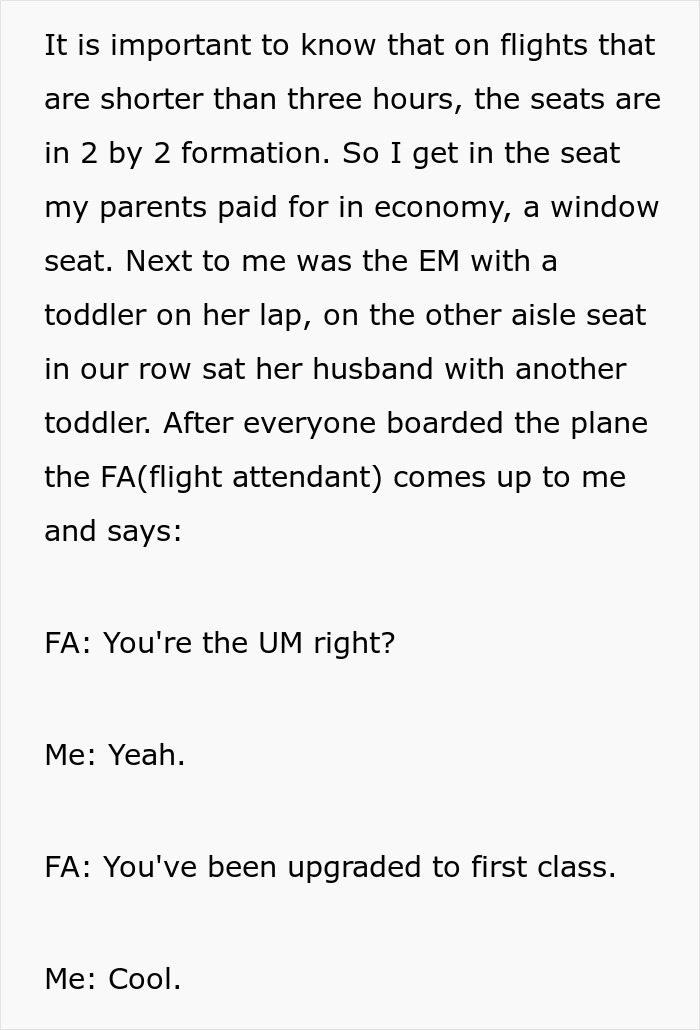


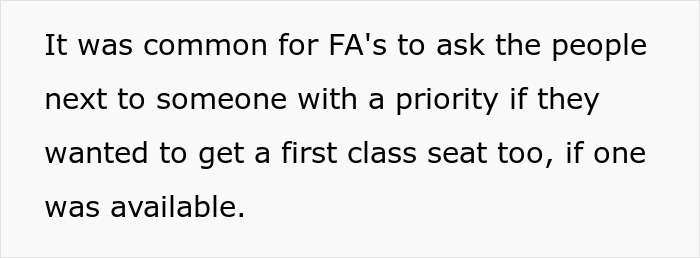



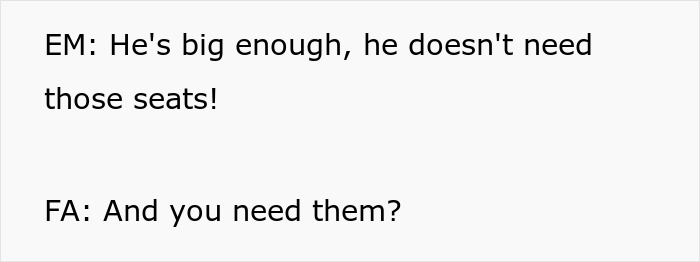


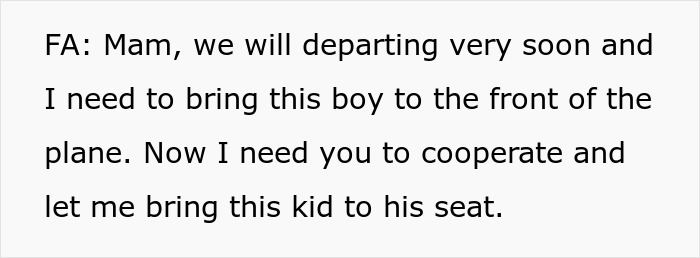

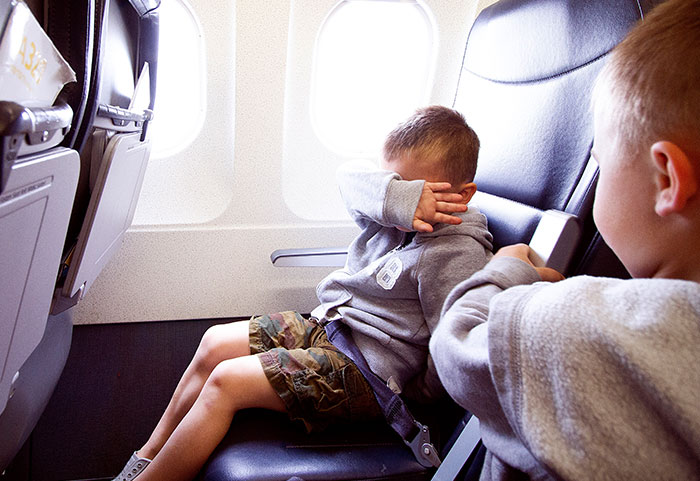
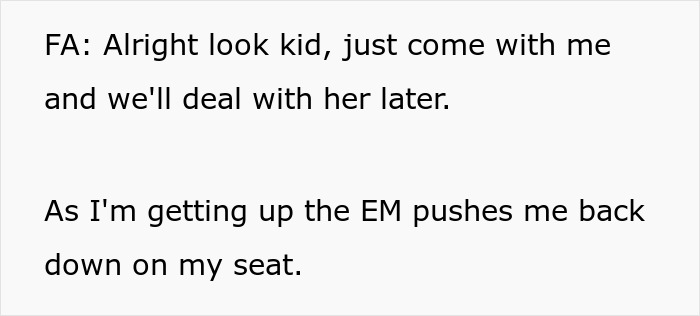

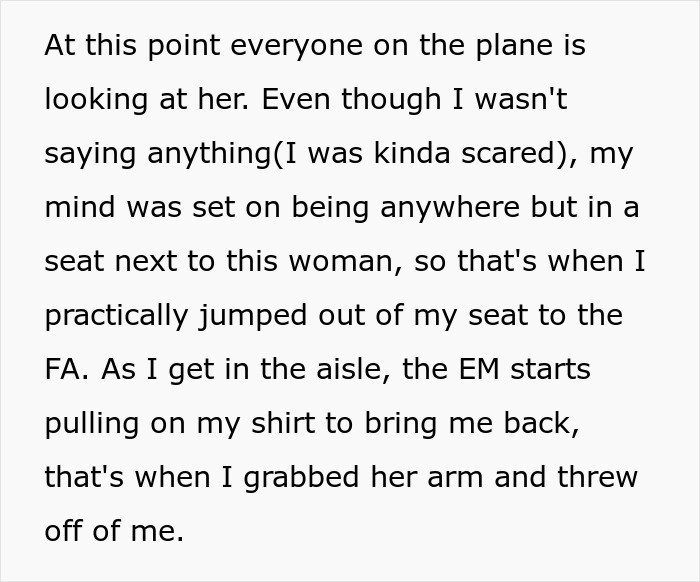





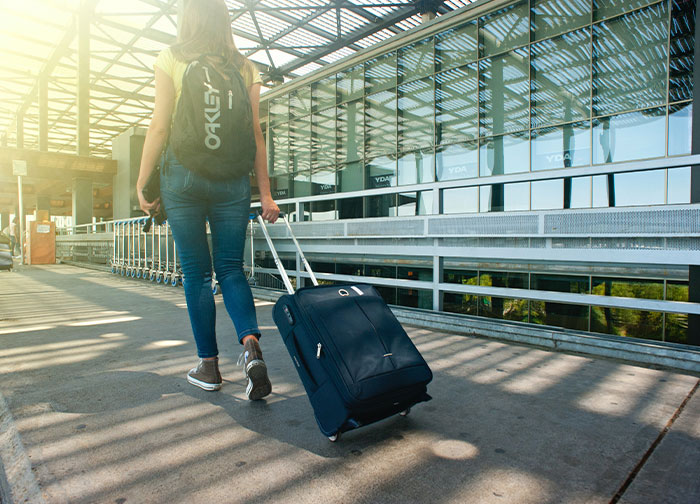


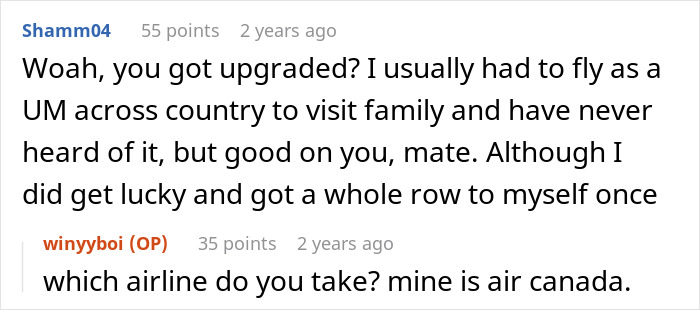




















































234
230